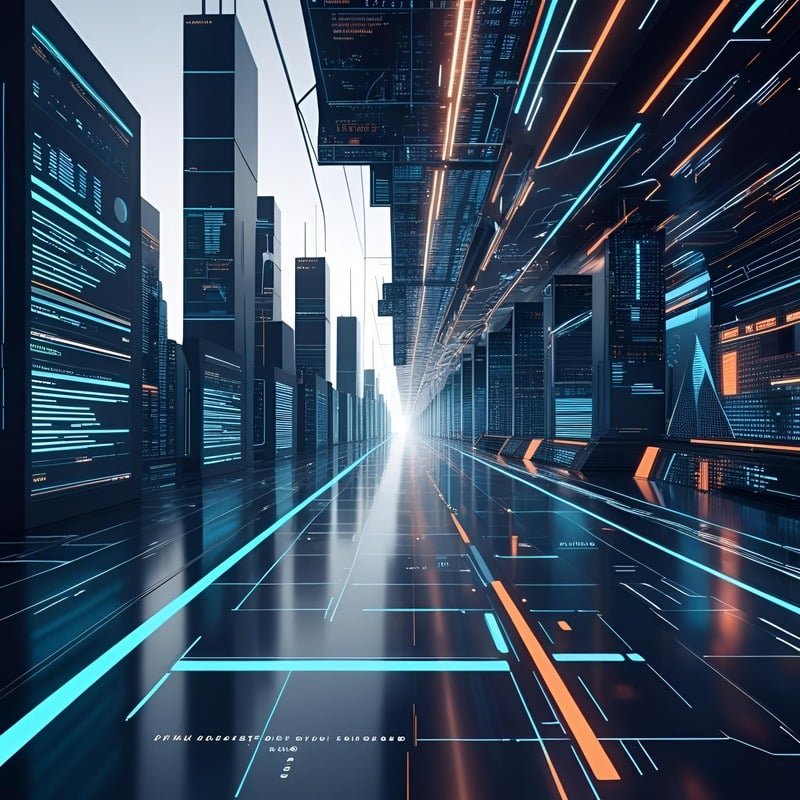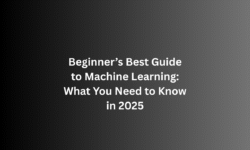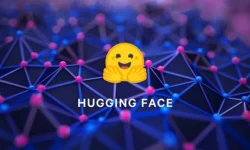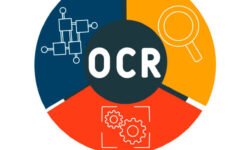Introduction to AI in Digital Marketing
Artificial Intelligence (AI) is no longer a futuristic concept—it’s a present-day necessity in ai in digital marketing and SEO (search engine optimization). In 2025, businesses that are not leveraging AI-driven tools and strategies are already falling behind. From understanding consumer behavior to automating marketing campaigns, AI is transforming how brands connect with their audiences.
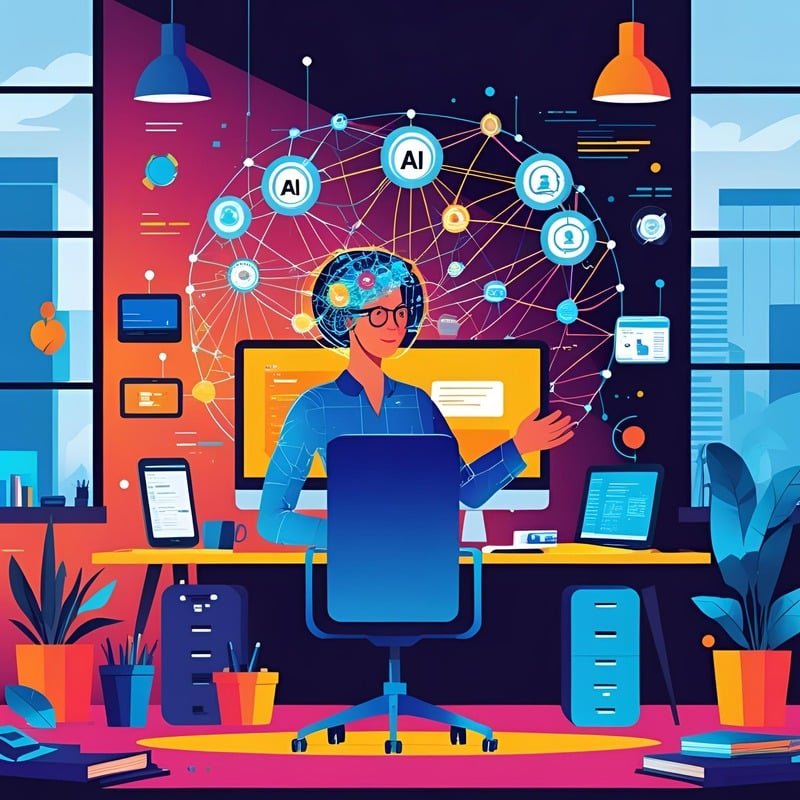
What is AI in Digital Marketing?
AI in digital marketing refers to the use of intelligent technologies such as machine learning, natural language processing (NLP), and predictive analytics to automate tasks, analyze data, and deliver more personalized customer experiences. Unlike traditional marketing approaches, AI systems can process massive amounts of data instantly and provide insights that would take humans weeks or months to uncover.
Examples of AI in action include:
- Chatbots answering customer queries 24/7.
- Algorithms analyzing consumer behavior to suggest products.
- AI-powered tools optimizing ad bids in real time.
- Automated content creation tools generating blog posts, social media captions, and even videos.
In short, AI is the brain behind modern marketing, enabling businesses to work smarter, not harder.
Why AI Matters for Businesses in 2025
The digital marketing landscape is more competitive than ever. Consumers expect personalized, real-time interactions with brands. Without AI, meeting these expectations would be nearly impossible.
- Speed: AI handles real-time data analysis, helping marketers make faster, smarter decisions.
- Accuracy: Unlike humans, AI tools are less prone to error when processing large datasets.
- Personalization: Customers don’t want generic ads; they want tailored recommendations, and AI delivers that.
- Scalability: Whether you’re a small business or a global brand, AI scales your marketing efforts seamlessly.
In 2025, AI is not just a luxury—it’s a survival tool in digital marketing.
How AI is Transforming Digital Marketing
AI is revolutionizing how businesses attract, engage, and retain customers. It’s no longer about broadcasting a single message to everyone—it’s about creating unique experiences for each customer.
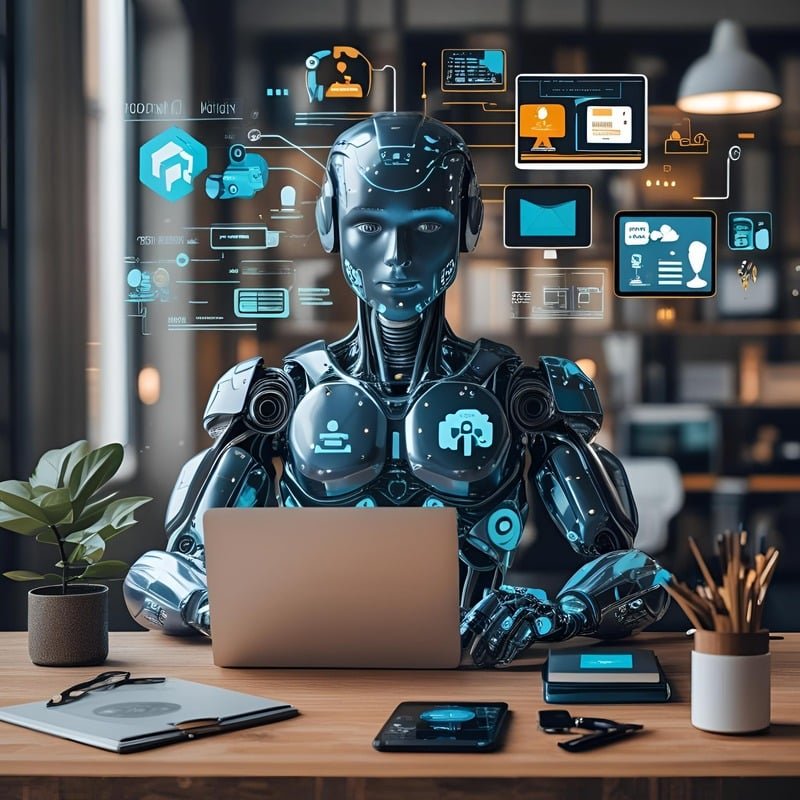
AI in Customer Behavior Analysis
Marketers used to rely on surveys and guesswork to understand customers. Now, AI tools track online behavior, purchase patterns, and engagement levels to build detailed customer profiles.
For example:
- Amazon uses AI to recommend products based on browsing and buying history.
- Netflix suggests movies using AI-driven recommendation engines.
- E-commerce sites use predictive analytics to forecast what customers are likely to buy next.
By understanding behavior at such a deep level, businesses can predict customer needs even before they’re expressed.
AI in Content Creation and Personalization
Content is still king, but AI is quickly becoming the queen of personalization. AI-powered tools can generate blog ideas, create social media captions, and even draft emails. But more importantly, AI ensures that this content is personalized for each audience segment.
Examples:
- AI-driven email marketing platforms (like Mailchimp’s AI features) tailor subject lines to increase open rates.
- Tools like Jasper and Copy.ai generate personalized ad copy at scale.
- AI ensures that content is not just created but optimized for engagement.
This level of personalization helps brands build stronger relationships with customers while saving countless hours.
AI in Paid Advertising and Campaign Optimization
Paid advertising is one of the areas where AI shines brightest. Platforms like Google Ads and Facebook Ads already rely heavily on AI to optimize bidding strategies, audience targeting, and ad placements.
AI ensures that:
- Ads are shown to the right people at the right time.
- Campaign budgets are optimized automatically to maximize ROI.
- Real-time adjustments keep ads competitive without manual monitoring.
For instance, AI-powered tools can detect which ad creatives perform best and automatically adjust campaign spending toward higher-performing ads.
The result? Businesses spend less while reaching more qualified leads.
Benefits of AI in Digital Marketing
Now that we’ve explored how AI is transforming marketing, let’s break down its benefits.
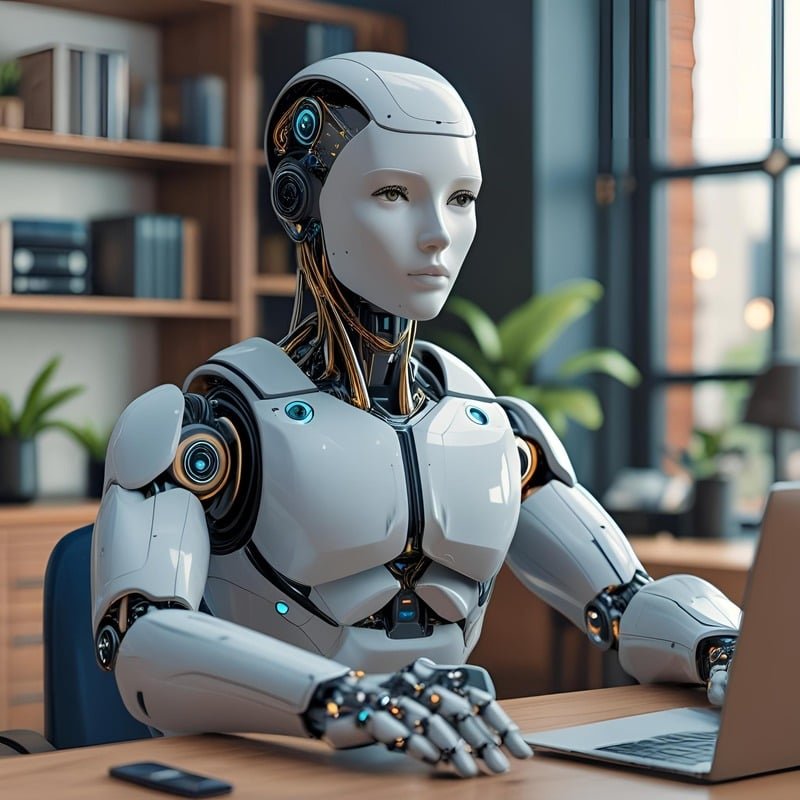
Improved Targeting and Audience Segmentation
Traditional marketing relied on broad demographics—age, gender, location. AI takes it further by analyzing behavior, interests, and real-time data.
For example:
- Instead of targeting “men aged 25–35,” AI can target “men aged 25–35 who recently searched for running shoes and follow fitness influencers.”
- This laser-focused targeting improves conversion rates while reducing wasted ad spend.
Enhanced Customer Engagement and Experience
AI makes interactions seamless. Whether it’s chatbots answering questions instantly or recommendation engines offering personalized suggestions, AI creates a smoother customer journey.
Customers feel understood and valued, which increases brand loyalty. Companies like Sephora, Spotify, and Starbucks use AI to deliver highly customized experiences.
Time and Cost Efficiency
AI eliminates repetitive, time-consuming tasks such as:
- Analyzing SEO keywords.
- Scheduling social media posts.
- Monitoring ad performance.
This efficiency allows businesses to cut costs while freeing up marketing teams to focus on creativity and strategy.
The Role of AI in SEO
Search engine optimization is one of the areas most impacted by AI. Google itself relies heavily on AI algorithms like RankBrain and BERT to deliver search results. Marketers must adapt to these changes by using AI to stay competitive.

AI for Keyword Research and Content Strategy
Keyword research is no longer about stuffing content with high-volume keywords. AI tools like SEMrush, Ahrefs, and Clearscope analyze search intent, competitor performance, and semantic variations to suggest strategic keywords.
AI can also predict content trends, helping marketers plan strategies around upcoming topics. Instead of reacting to trends, businesses can stay ahead of the curve.
AI in On-Page SEO Optimization
AI tools like Surfer SEO and Frase can analyze top-ranking pages and recommend improvements in real time. These include:
- Keyword placement.
- Readability enhancements.
- Meta description and title optimization.
By following AI recommendations, marketers can increase their chances of ranking higher on Google.
AI in Voice Search and Semantic Search Optimization
With voice assistants like Alexa, Siri, and Google Assistant growing in popularity, voice search optimization is crucial. AI helps businesses create content that answers conversational queries such as “Where’s the nearest Italian restaurant?” instead of just “Italian restaurant near me.”
Semantic search means Google focuses more on intent than exact keywords. AI tools help marketers optimize content to answer what users really mean.
AI in Technical SEO and Site Performance
AI-powered crawlers identify technical issues such as slow loading speeds, broken links, or poor mobile usability. These insights allow webmasters to fix problems quickly before they hurt rankings.
In fact, some AI tools can automatically optimize site speed by compressing images, improving server response times, and streamlining code.
AI Tools for Digital Marketing and SEO
AI is powerful on its own, but its real magic happens through tools and platforms designed to make marketers’ lives easier. In 2025, the digital marketing toolbox is dominated by AI-powered solutions that save time, cut costs, and maximize performance.
Popular AI-Powered Marketing Tools
- HubSpot AI – Provides predictive lead scoring, customer segmentation, and automated email campaigns.
- Jasper (AI Writer) – Generates high-quality content for blogs, ads, and social media.
- Copy.ai – Helps marketers create ad copy, captions, and product descriptions in seconds.
- Persado – Uses AI to optimize emotional triggers in marketing messages.
- Phrasee – Specializes in AI-generated email subject lines and CTAs that boost engagement.
These tools allow marketers to work smarter, not harder, delivering better results with fewer resources.
AI-Powered SEO Platforms
SEO is becoming increasingly AI-driven, and several platforms lead the way:
- Surfer SEO – Analyzes top-ranking content and recommends optimization strategies.
- Frase – Helps marketers create SEO-optimized content by identifying intent-based topics.
- Clearscope – Suggests semantic keywords and readability improvements.
- MarketMuse – Uses machine learning to identify content gaps and suggest keyword clusters.
These tools make SEO less of a guessing game and more of a data-driven science.
Chatbots and Conversational AI in Marketing
Chatbots have evolved far beyond answering simple FAQs. With conversational AI, brands can:
- Provide 24/7 customer support.
- Upsell and cross-sell products directly in chat.
- Gather customer feedback and insights.
Companies like Sephora use AI-powered chatbots to recommend beauty products, while Domino’s Pizza allows customers to place orders directly through AI chat. This instant, personalized interaction boosts customer satisfaction and brand loyalty.
Risks and Challenges of Using AI in Marketing
While AI is a game-changer, it isn’t flawless. Businesses need to be aware of the risks that come with heavy reliance on AI.
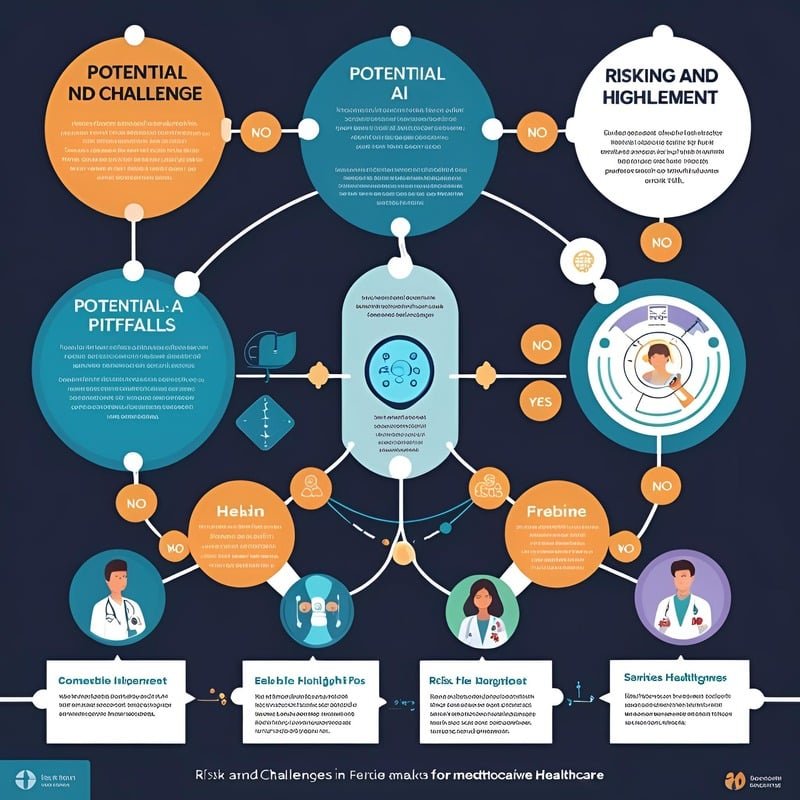
Over-Reliance on Automation
When businesses let AI handle everything, they risk losing the human touch in marketing. Automated content and responses can sometimes feel robotic, reducing genuine customer connection.
For example, a chatbot may fail to understand a complex customer request, leading to frustration. Marketers must balance AI efficiency with human creativity and empathy.
Data Privacy and Ethical Concerns
AI thrives on data, but this raises privacy concerns. Collecting, storing, and analyzing personal data must comply with GDPR, CCPA, and other data protection regulations.
Unethical use of AI—such as hyper-targeting vulnerable audiences or misusing personal data—can damage brand reputation. Transparency in how data is used is key to maintaining trust.
Content Originality and Human Creativity
AI can generate blog posts, emails, and even video scripts, but there’s a catch: much of this content lacks the nuanced creativity that humans bring. Search engines like Google may also penalize low-quality, AI-generated content that doesn’t provide real value.
The challenge is to use AI for efficiency, but keep human marketers involved for authenticity and originality.
The Future of AI in Digital Marketing and SEO
Looking ahead, AI’s role in marketing and SEO will only grow stronger. Companies that adopt these technologies early will have a clear competitive edge.
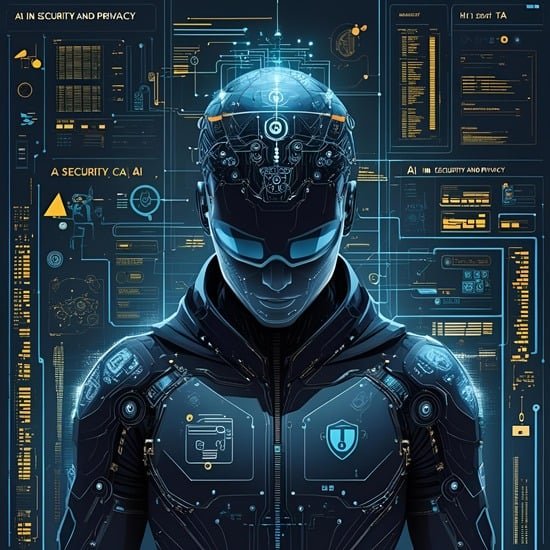
Predictive Analytics and Hyper-Personalization
AI is moving toward predictive marketing, where it not only analyzes data but also forecasts customer actions. Imagine sending an offer to a customer right before they realize they need it—that’s the future.
Hyper-personalization means tailoring every touchpoint:
- Personalized website experiences.
- Customized product recommendations.
- Individualized pricing models based on user behavior.
AI and the Rise of Visual and Voice SEO
With platforms like TikTok, Instagram Reels, and YouTube Shorts dominating attention, AI will help marketers optimize visual content for search engines.
Meanwhile, voice search is booming, thanks to Alexa, Siri, and Google Assistant. AI will help businesses optimize for natural language queries and conversational search. For example: “What’s the best coffee shop near me that’s open now?”
AI in Customer Relationship Management (CRM)
AI-powered CRMs like Salesforce Einstein and Zoho CRM are redefining customer relationship management. These tools predict customer needs, suggest follow-ups, and even automate sales funnels.
The future CRM will act more like a digital marketing partner than just a database, helping businesses strengthen relationships and maximize conversions.
Balancing AI with Human Creativity in Marketing
AI is incredible at handling data, automation, and scaling tasks—but it can’t replace human intuition, empathy, and storytelling.
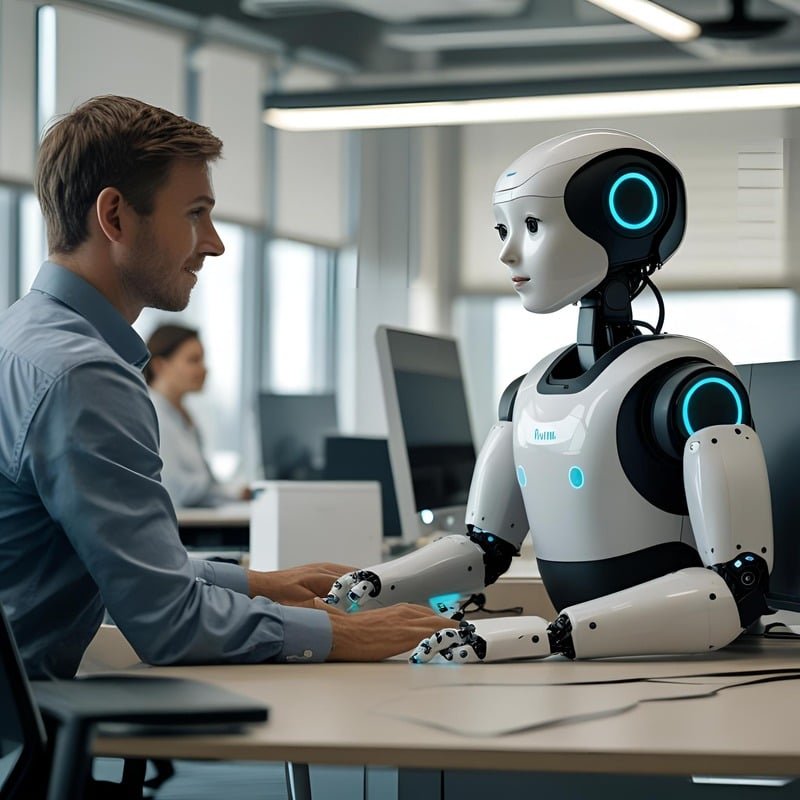
The Role of Marketers in the AI Era
Instead of fearing AI, marketers should see it as a partner. While AI analyzes trends and optimizes campaigns, humans should focus on:
- Crafting brand stories.
- Building emotional connections with customers.
- Designing creative campaigns that resonate on a cultural level.
AI is the engine; marketers are the drivers steering the strategy.
Why Human Insight Still Matters
Marketing is more than just data—it’s about understanding people. AI can tell you what your customers are doing, but it can’t fully explain why they’re doing it. Only humans can interpret cultural nuances, emotions, and motivations that influence behavior.
The winning strategy will be AI + Human Creativity, not one over the other.
Preparing for the AI-Powered Marketing Future
AI is here to stay, and marketers who adapt will thrive. But preparation is key.
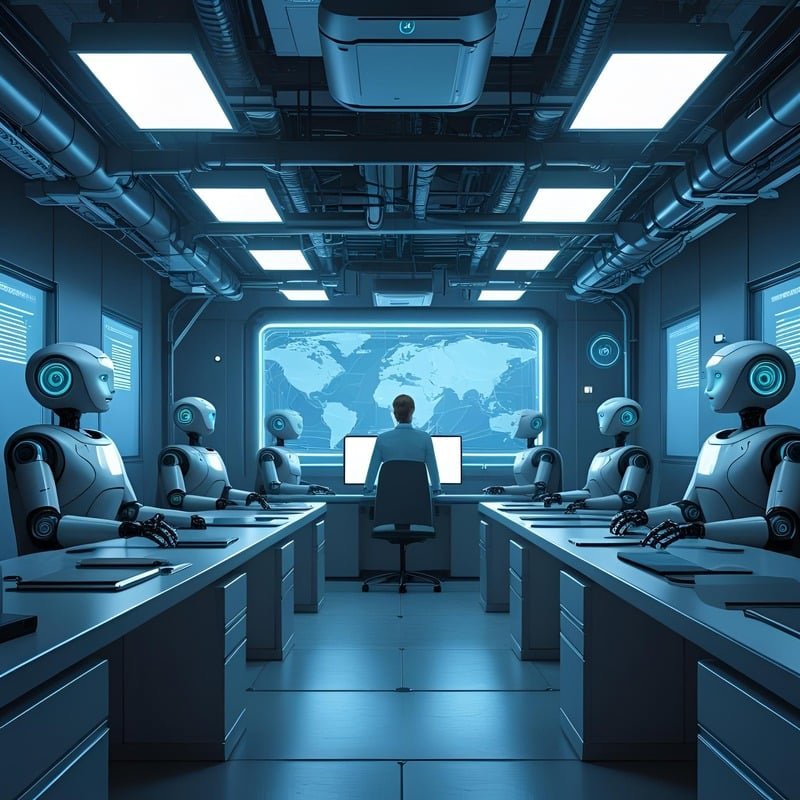
Skills Digital Marketers Need
Tomorrow’s marketers will need a mix of technical and creative skills:
- Understanding AI and machine learning basics.
- Data analytics and interpretation.
- SEO and content marketing expertise.
- Storytelling and creative thinking.
Marketers must become tech-savvy storytellers, blending AI tools with human creativity.
Integrating AI into Marketing Strategies
Businesses should start small—maybe by adopting AI chatbots or SEO tools—and then scale gradually. AI should be integrated into:
- Content creation workflows (AI-assisted writing).
- Customer support (chatbots and virtual assistants).
- SEO strategies (predictive keyword research).
- Ad campaigns (real-time optimization).
The goal is not to replace humans but to empower them to deliver smarter, more efficient, and more personalized marketing campaigns.
Conclusion
Artificial Intelligence has completely reshaped digital marketing and SEO. From customer behavior analysis to personalized content, from AI-powered chatbots to predictive analytics, businesses now have the ability to connect with audiences in ways that were impossible just a few years ago.
The benefits are undeniable: better targeting, cost savings, faster insights, and enhanced customer experiences. Yet, alongside these advantages come challenges—ethical concerns, over-reliance on automation, and the need to balance machine efficiency with human creativity.
The future of AI in marketing is about partnership, not replacement. AI can crunch the numbers, predict patterns, and automate tasks, but it cannot replace the emotional intelligence and creativity of humans. The most successful businesses will be those that blend AI’s power with authentic storytelling, empathy, and brand identity.
In short, AI is not the end of marketing as we know it—it’s the beginning of a smarter, more personalized, and more efficient era.
FAQs About AI in Digital Marketing and SEO
How is AI used in digital marketing today?
AI is used in many ways, including customer segmentation, personalized product recommendations, ad optimization, chatbots for customer service, predictive analytics, and SEO content optimization. Companies like Netflix, Amazon, and Spotify rely heavily on AI-driven personalization.
Can AI replace human marketers?
No. AI can automate repetitive tasks and provide insights, but human marketers bring creativity, emotional understanding, and cultural context that machines cannot replicate. The best results come from combining AI efficiency with human creativity.
What are the biggest risks of AI in marketing?
The main risks include over-automation (losing the human touch), ethical issues with data usage, and the potential for biased algorithms. Businesses must use AI responsibly and transparently to maintain trust.
How does AI improve SEO?
AI helps with keyword research, competitor analysis, on-page optimization, content recommendations, and technical SEO audits. It also supports optimization for voice search and semantic search, making content more relevant to users.
What skills should digital marketers learn to stay relevant in the AI era?
Marketers should focus on data analysis, SEO, AI tool usage, storytelling, and creativity. Having a balance of technical know-how and creative thinking will be essential in the AI-powered marketing world.
External Links (DoFollow)
Interesting blog
Beginner’s Best Guide to Machine Learning: What You Need to Know in 2025

